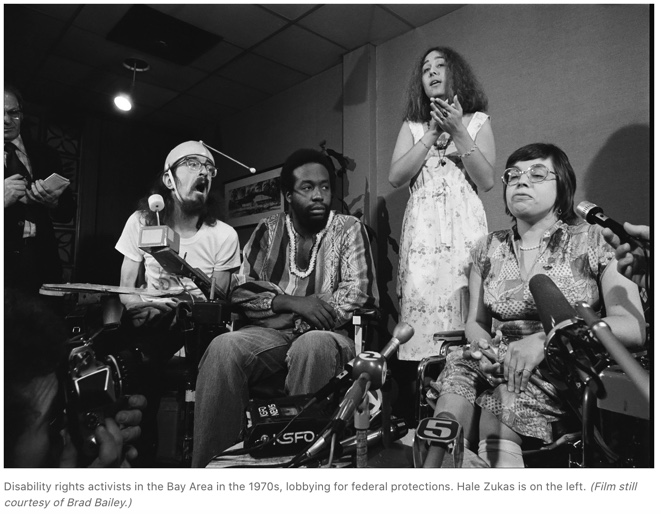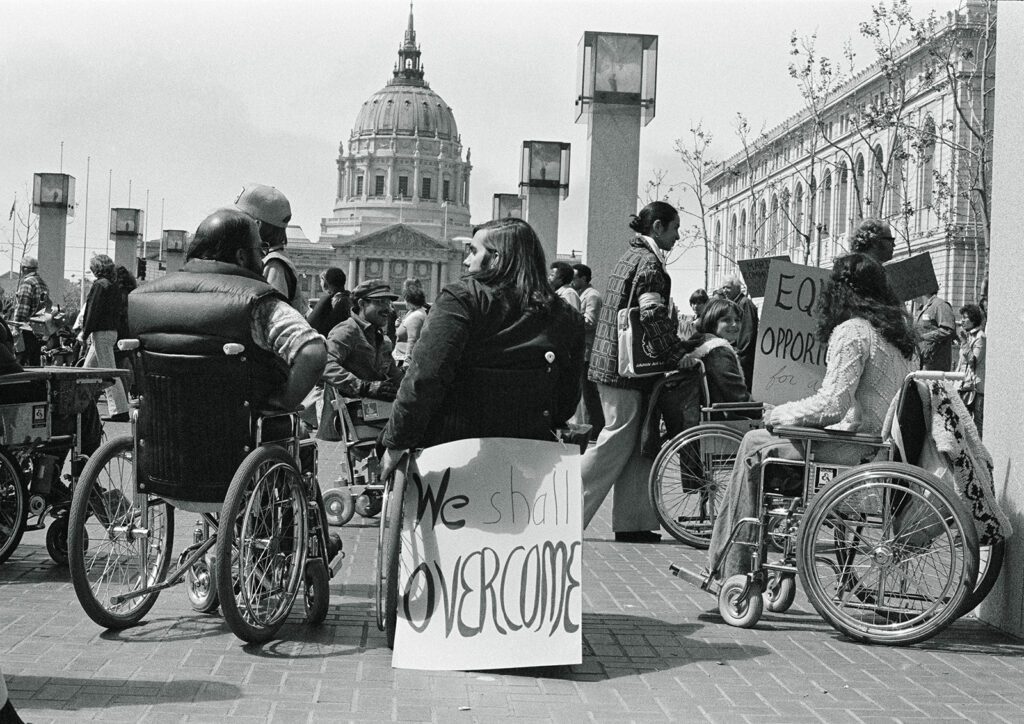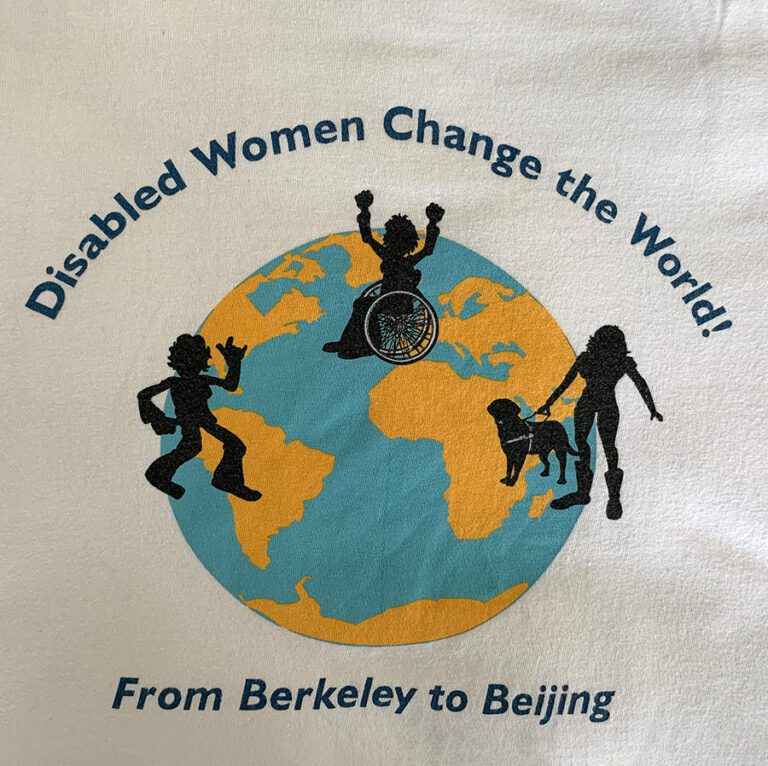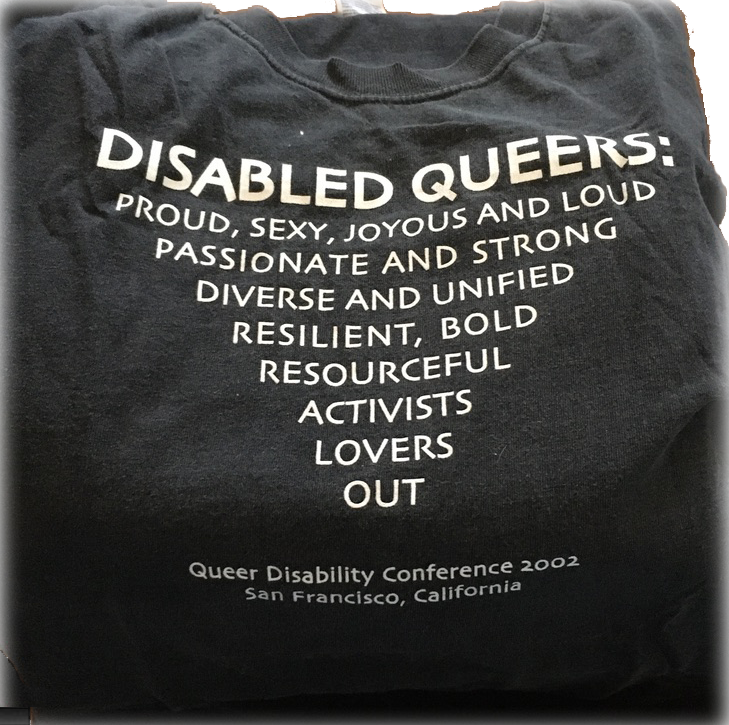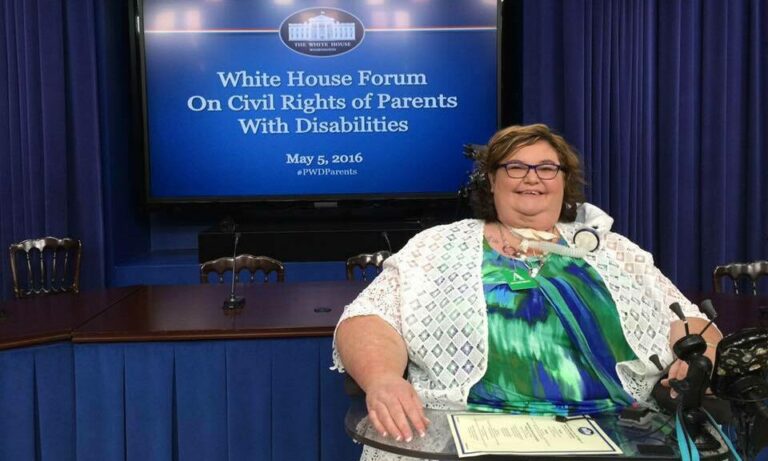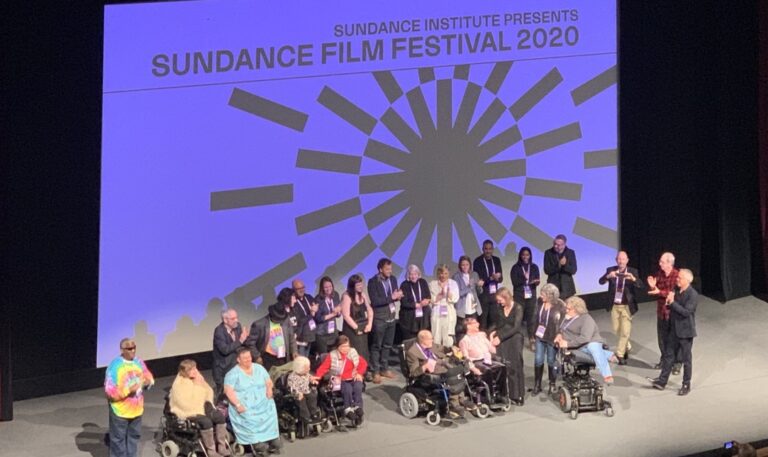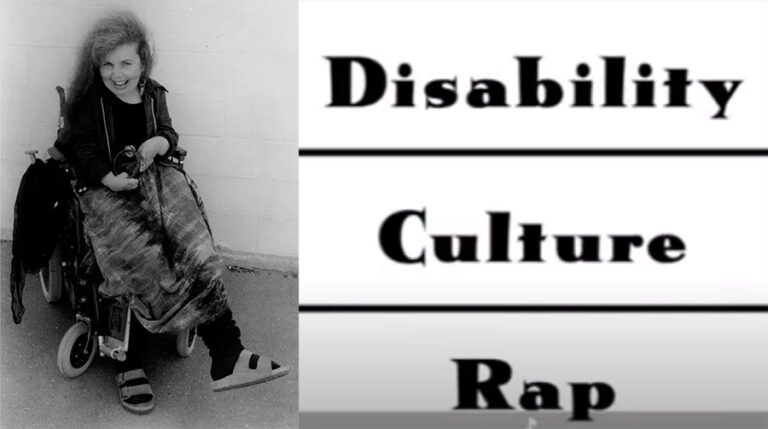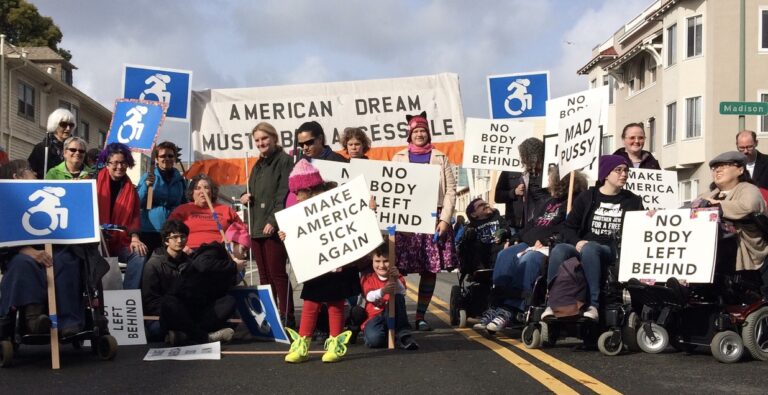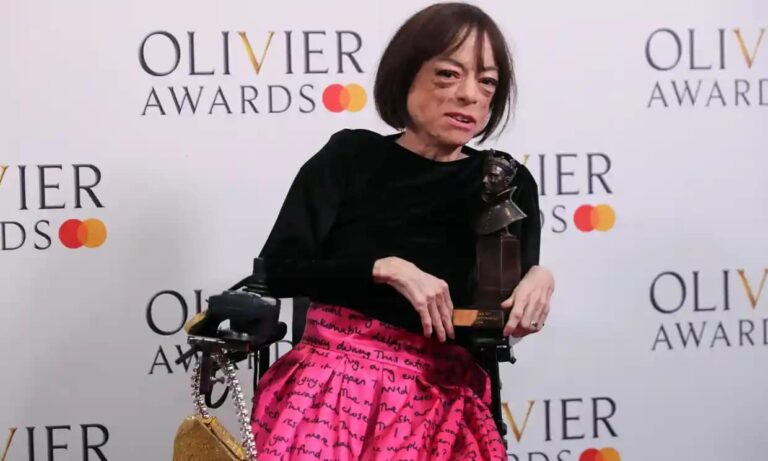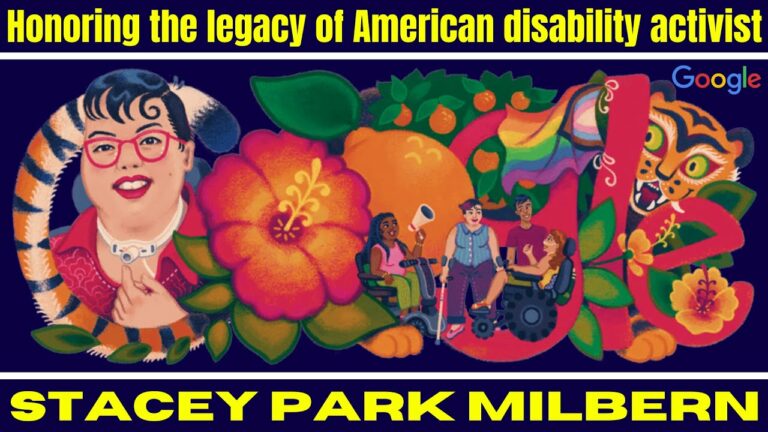Turning Points - Disability Histories
The past 50 years disabled people transformed social and cultural landscapes. Activism, legal changes and opportunities for inclusion brought generations of disabled people into public spaces and consciousness. These are a few of the Turning Points.
(![]() = events that Corbett participated in)
= events that Corbett participated in)
Founded in 1972 by disabled community activists and nondisabled allies, the Center for Independent Living in Berkeley (CIL) changed the perception of disabled people as recipients of care to proud people capable of changing society. This disabled-led model provided bases of connection and advocacy for disability community in the US and around the world. (CIL oral histories @ Bancroft)![]()
504 Protests: In 1973 Section 504 became law. It prohibited discrimination by any entity receiving any federal funding. But 4 years later that law was still not in force because of delays in the enforcing regulations. In April 1977 a diverse coalition led by disabled people occupied federal offices across the U.S. The San Francisco sit-in lasted 26 days and resulted in the regulations being issued. Finally disabled people, and people considered disabled, had federal protections against discrimination. These protests, and especially their success, inspired future generations of disabled people who created for the Americans with Disabilities Act in 1990. (More about 504 protests)![]()
Disabled Women’s Symposium: In 1995 disabled women and allies from around the world gathered at the UN Fourth World Conference on Women NGO Forum in Beijing. Disabled women created a Disabled Women’s Symposium. The exchange of ideas fueled international networks and changes for disabled women and girls around the world. ![]()
Queer Disability Conference: In 2002 a broad spectrum of disabled queers from around the world gathered in San Francisco. Featured speakers represented Deaf, intersex, MCS (Multiple Chemical Sensitivities), Autistic, trans*, cancer, and many other communities. ![]()
Parenting: Disabled parents fought hard against discrimination that often removed their children through legal advocacy, media, and conferences. Watch Mothers and Daughters. ![]()
Crip Camp: The 2020 Oscar-nominated Netflix film initiated new conversations on disabled people. Crip Camp follows one thread of the diverse histories of the U.S. disability rights movement. ![]()
Disability Culture Rap: Groundbreaking video of photos of a wide variety of disabled people over the soundtrack of Cheryl Marie Wade reading the title poem.![]()
Liz Carr was named Best Actress in a Supporting Role at the 2022 Olivier Awards for her performance as Dr. Emma Brookner in The Normal Heart. She was the first disabled actor to play the disabled doctor Linda Laubenstein.
Stacey Park Milbern became one of the few disabled people selected for a Google Doodle to honor her profound impact on community organizing, mutual aid networks, and racism facing disabled people of color.

